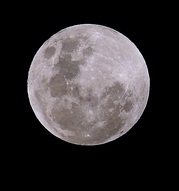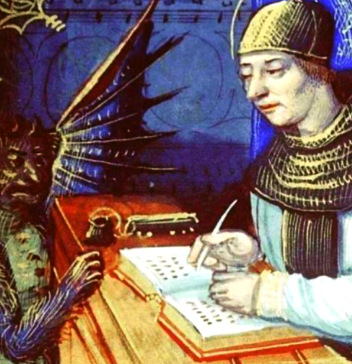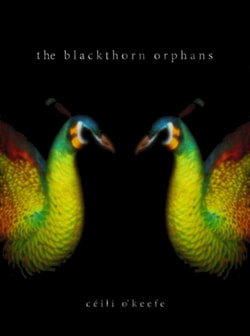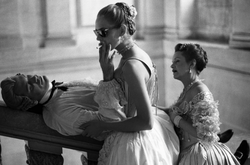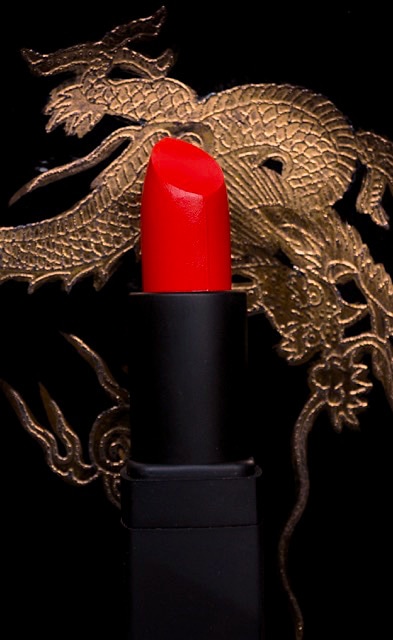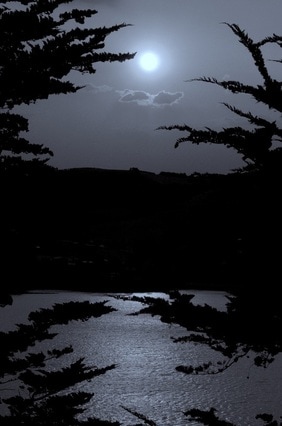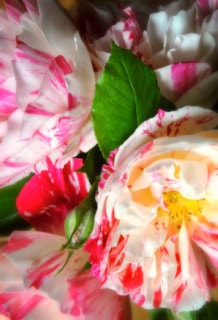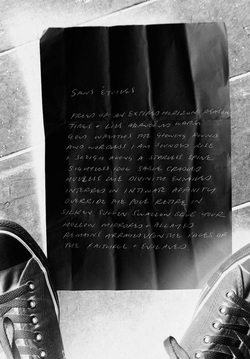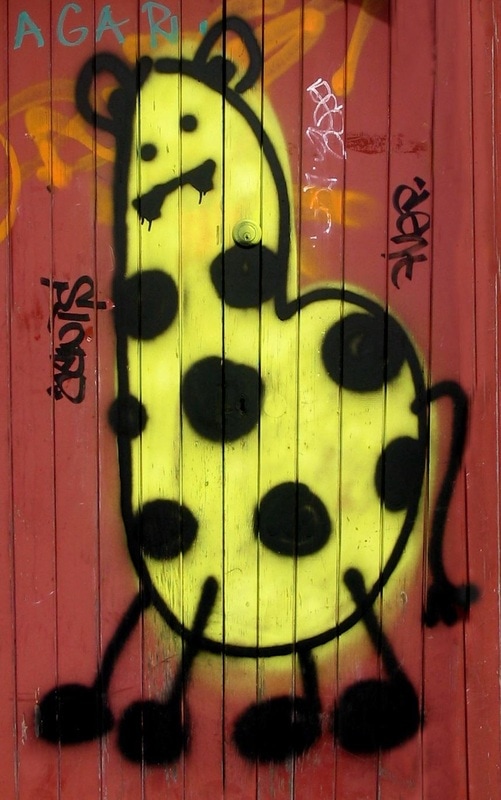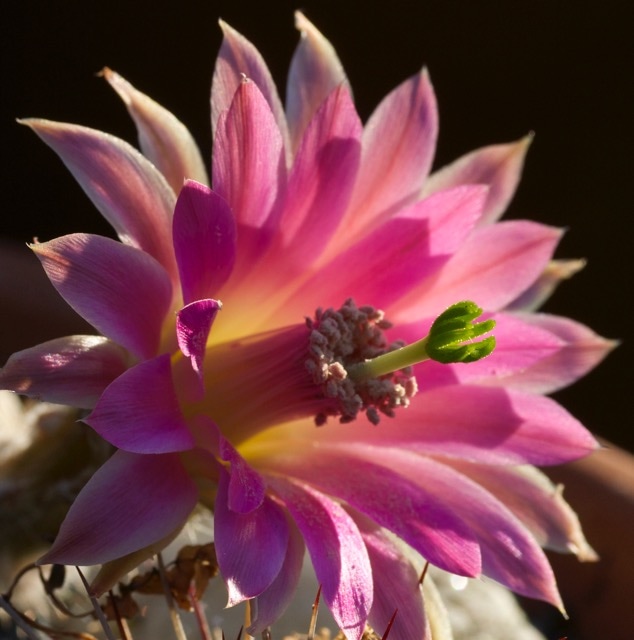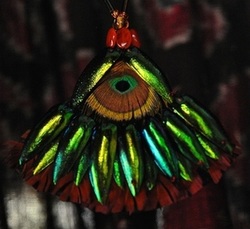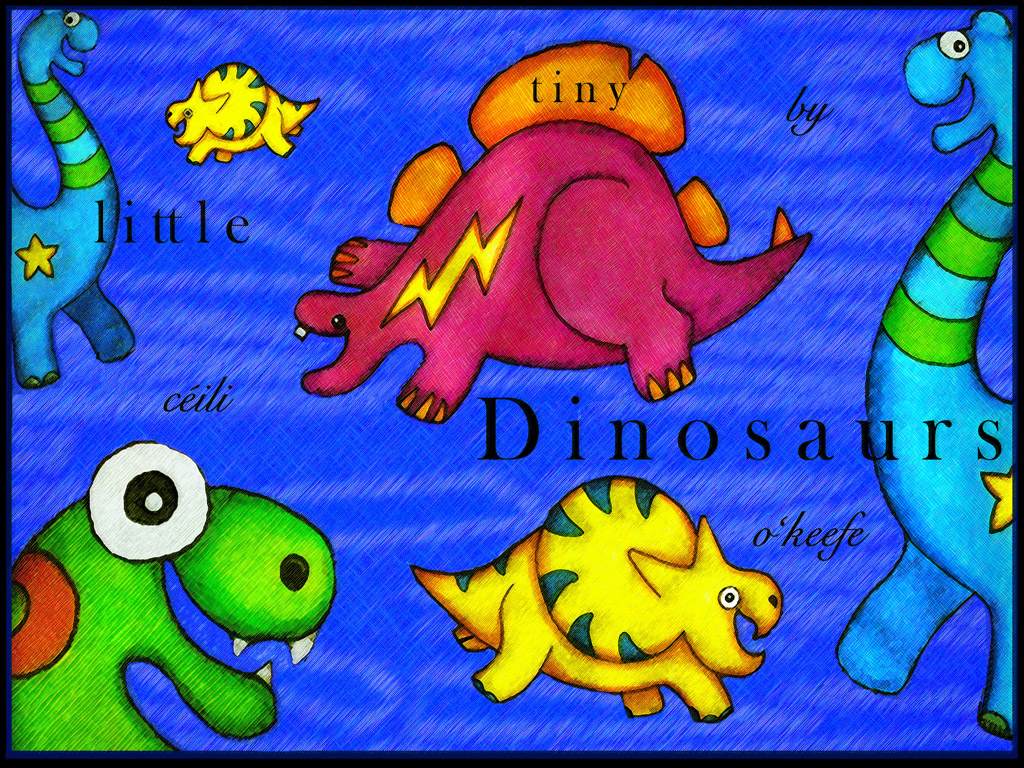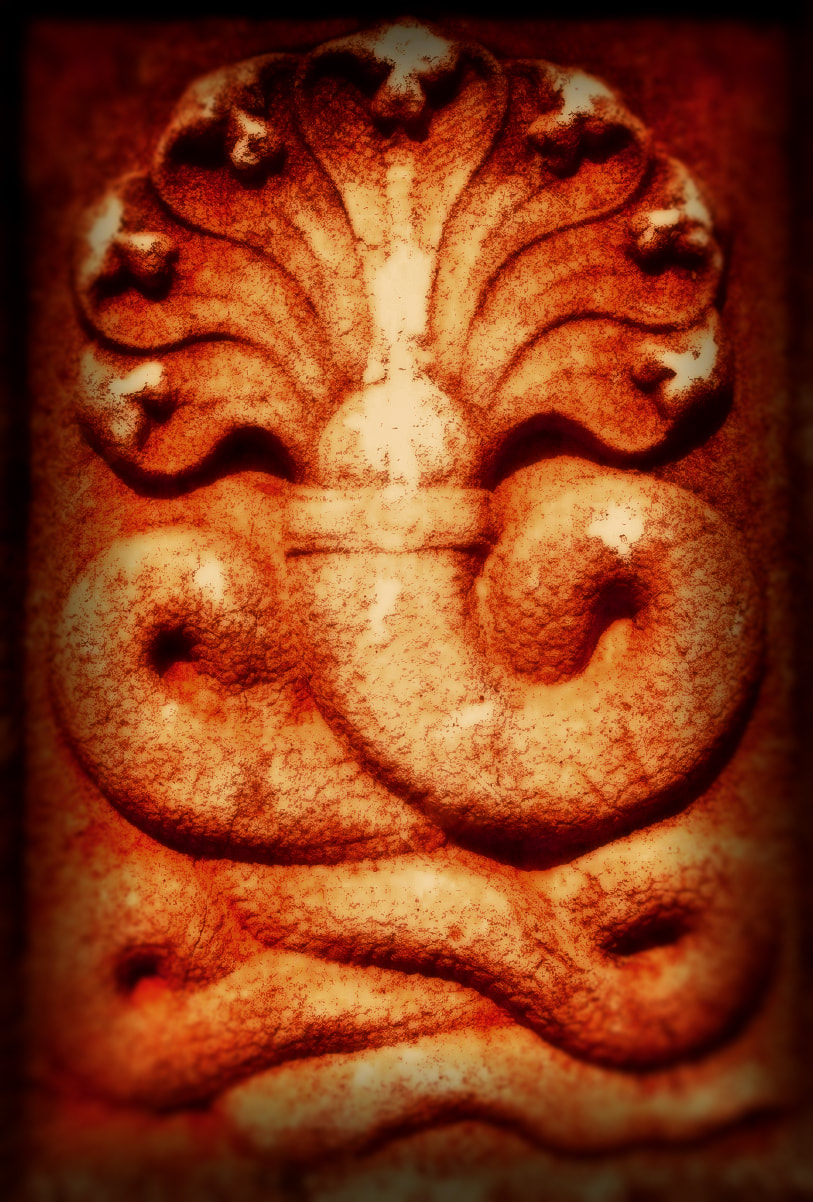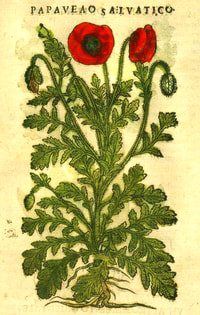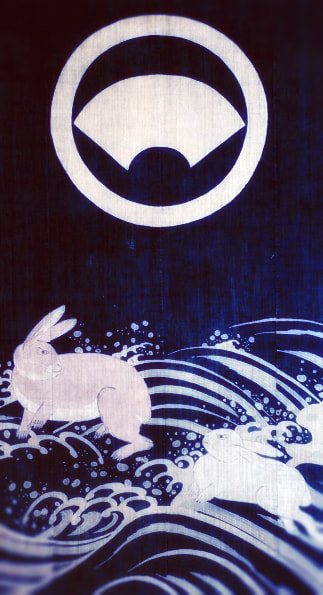In 1927 Lovecraft knocked out a story that has slowly grown in my estimation, particularly as I finished TBOs, looked down upon the ziggurat it had become and wondered if I'd gone too far in all directions. The Colour Out of Space is the pithy sort of thing that will give you pause in that respect from its perch at the far end of the scale; it is brief and unfrilled and enjoys that most enviable of qualities- palpable success. It is so robust that it subverts the teller's shortcomings, turning Lovecraft's ineptitudes to solid gold. It leans on existing notions without harping or appropriation, plays your own susceptibilities like a seasoned grifter; in short, it is both horrible and wondrous, like so many earthly pleasures.
A précis is intriguing if not exactly the sort of thing that whips one into frothing anticipation. In a nameless valley a meteorite is observed to land and duly prodded by professors with an interest in its ultramundane qualities. This precipitates a strange contamination of the land, its dependent animals and eventually the resident rustics to the extent that they are drunk dry by the presence lurking in the sunken meteor as the latter prepares to return to space. It doesn't sound particularly Lovecraftian to my ear and from the start the Miskatonic setting is effected without the wadding and loss of nerve afflicting work written to either side of The Color, plunging instead into those related veins of unconscious dread and organic affinity that serve his best work so well.
These organic facets are apparent from the start, plainly stated and, for once, allowed to shift for themselves. The story opens in a rural vale 'west of Arkham' and Lovecraft exploits the innate topographic contention between valley and surrounds to construct an atmosphere immediately recognizable to the perceptive. The Gardner farm itself is concisely expressive of the anxiety around the legitimacy and degree of occupation suffered by every acre annexed out of wilderness, a tension furthered by the idea of looming Nature acting as a vector to hostile forces. I wish he'd learned to trust more of his structures to this kind of foundation. In its mycelial pervasion of the soil, flora and fauna the alien pursues plausible biological pathways in a manner pleasing to the connoisseur of such speculative harmonies; who can hate a horror that turns the apples ashy and wipes the very woodchucks from the menu?
Lovecraft's literary shortcomings forced him to back away from the mutants of that blighted biome since 'no one could possibly describe' them, contenting himself with repeating the locals' mumbled accounts and this reticence favours the alien entity too; the delicate, rumored beauty of the unknown element might have been buried under a mass of hyperventilating overstatement if Howard could have thought of anything to say. (I picture it as being a sort of silvery mauve.) He sounds almost nervous about his own creation and relieved to be able to call it a colour without having to describe the shade. One might have termed that tasteful restraint rather than omission if he hadn't welshed so often elsewhere; luckily some things are best left unsaid. For once, the attempted scientific inquiry rings the right bells and comes to no solid conclusions and this undermines any confidence we might have had in intervention by a remote establishment, miring us in the bafflement endured by the characters themselves.
All this is topped with figurative marzipan in the form of the reservoir that promises to inundate the region, intended to supply drinking water to hapless Arkham and into which the interstellar presence might discharge itself like some sort of shiny, purply cholera.
Psychological props are employed with the same unwonted assurance. The airless horrors of passivity and apathy are modeled to perfection by the luckless Gardners, who are alike unto the skunk cabbages in their inertia. There is sadistic satisfaction in knowing they are doomed, a toe-curling loathing that extricates us from any identification with the stolid, witless victim; this unflattering psychological context is fundamental to our enjoyment and I wonder how conscious Howard was of its insidious power. Flummoxed academics further illuminate the egghead's need to distance themselves from homely, slipshod reckoning, creating that nightmare axis of dismissal from above and ignorance below wherein so many catastrophes have flowered and unfolded.
In the grip of their misfortune the family plods on even as it crumbles and we are thankful for our distance from the creeping agent that afflicts them, the universal aversion to contagion prompting us to wash our mental hands as the tale is concluded. Its passage from water to garden to hogs to wife and on to sons and self is a neat depiction of the natural order as viewed from its notional masculine apex, invoking that timeless belief in feminine susceptibility to abandon demonstrated by everything from maenad to Baader-Meinhof. Mrs Gardner's screaming and the anguine movements of the trees are the voice of the unknown as expressed by the unknowable; Howard and a good portion of his audience surely suspected the alien in the female even before a meteor had buried itself in her front yard in that most freudian of galactic intrusions.
Smaller facets attract attention for their isolation within the Lovecraft canon. The professor's 'smart blow with a hammer', causing the glob within the meteor to 'burst with a nervous little pop' is one of the few moments of empirical immediacy I get from his work, sad as that seems. The aforementioned glowing, writhing fruit trees are an image seldom equalled anywhere in weird fiction, and one wonders how the purveyor of this marvel could have also been a slave to the skeins of pointless gothick crap that so nearly scuttle some of his best ideas. Even in The Color when we think we've gotten through the whole thing without a single pre-1670 gambrel roof shaped-clanger, he goes and drops one on our fucking heads, then once more demonstrates that excruciating mistrust of his own powers with shitty face-palmers like 'it was a scene from a vision of Fuseli'. For the love of god, why? Such puzzling gaucheries will probably always prevent me from embracing Howard unreservedly.
In checking a few facts on the Wikipage I've discovered he also considered The Color Out of Space to be his finest work, and I'm a wee bit surprised that he made the distinction. Maybe he had taste after all.

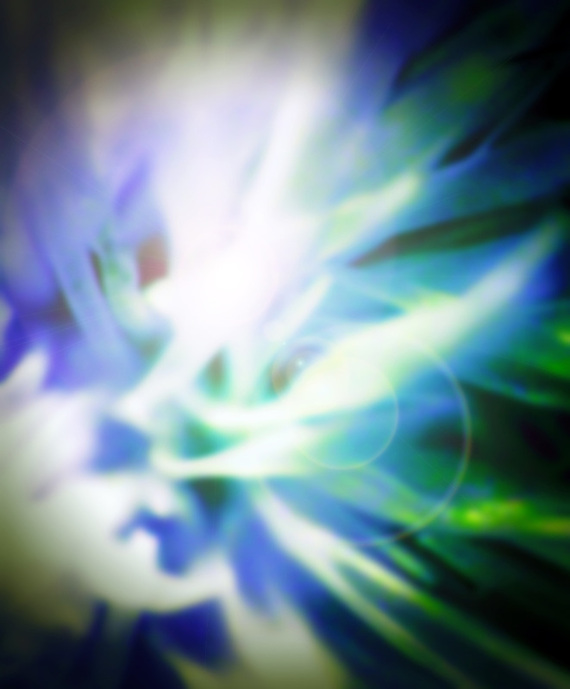
 RSS Feed
RSS Feed
